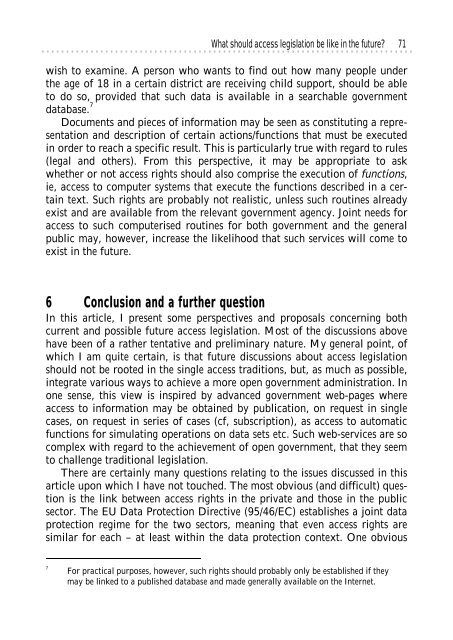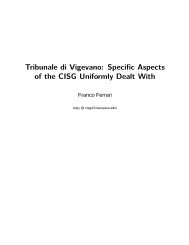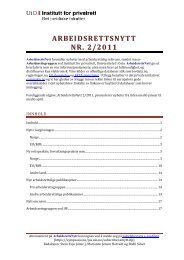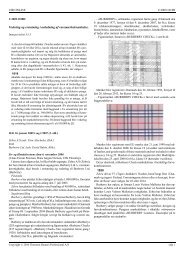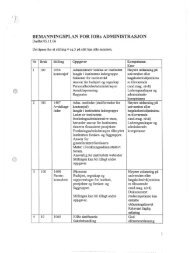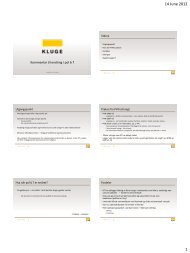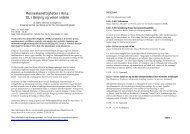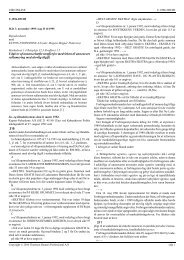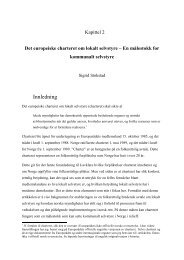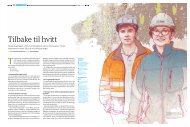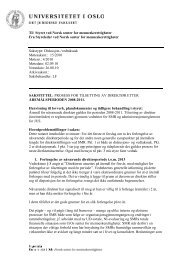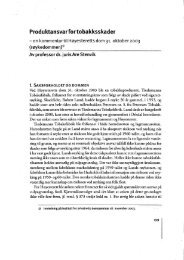Lee A. Bygrave (red.) YULEX 2002 - Universitetet i Oslo
Lee A. Bygrave (red.) YULEX 2002 - Universitetet i Oslo
Lee A. Bygrave (red.) YULEX 2002 - Universitetet i Oslo
You also want an ePaper? Increase the reach of your titles
YUMPU automatically turns print PDFs into web optimized ePapers that Google loves.
............................................................................<br />
What should access legislation be like in the future? 71<br />
wish to examine. A person who wants to find out how many people under<br />
the age of 18 in a certain district are receiving child support, should be able<br />
to do so, provided that such data is available in a searchable government<br />
database. 7<br />
Documents and pieces of information may be seen as constituting a representation<br />
and description of certain actions/functions that must be executed<br />
in order to reach a specific result. This is particularly true with regard to rules<br />
(legal and others). From this perspective, it may be appropriate to ask<br />
whether or not access rights should also comprise the execution of functions,<br />
ie, access to computer systems that execute the functions described in a certain<br />
text. Such rights are probably not realistic, unless such routines already<br />
exist and are available from the relevant government agency. Joint needs for<br />
access to such computerised routines for both government and the general<br />
public may, however, increase the likelihood that such services will come to<br />
exist in the future.<br />
6 Conclusion and a further question<br />
In this article, I present some perspectives and proposals concerning both<br />
current and possible future access legislation. Most of the discussions above<br />
have been of a rather tentative and preliminary nature. My general point, of<br />
which I am quite certain, is that future discussions about access legislation<br />
should not be rooted in the single access traditions, but, as much as possible,<br />
integrate various ways to achieve a more open government administration. In<br />
one sense, this view is inspi<strong>red</strong> by advanced government web-pages where<br />
access to information may be obtained by publication, on request in single<br />
cases, on request in series of cases (cf, subscription), as access to automatic<br />
functions for simulating operations on data sets etc. Such web-services are so<br />
complex with regard to the achievement of open government, that they seem<br />
to challenge traditional legislation.<br />
There are certainly many questions relating to the issues discussed in this<br />
article upon which I have not touched. The most obvious (and difficult) question<br />
is the link between access rights in the private and those in the public<br />
sector. The EU Data Protection Directive (95/46/EC) establishes a joint data<br />
protection regime for the two sectors, meaning that even access rights are<br />
similar for each – at least within the data protection context. One obvious<br />
7 For practical purposes, however, such rights should probably only be established if they<br />
may be linked to a published database and made generally available on the Internet.


